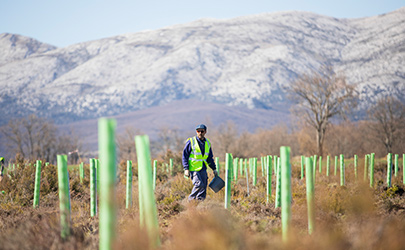New Energies

Shell’s New Energies business explores emerging opportunities linked to the energy transition and invests in those where we see sufficient value. We focus on power, from generation to electric-vehicle charging to integration with our trading business, as well as on new fuels for transport, including advanced biofuels and hydrogen.
Since the formation of New Energies in 2016, we have invested some $2.3 billion in the business, excluding operating costs, with the majority of this investment being directed to power.
Between 2021 and 2025, our investments in power could grow to between $2 billion and $3 billion per year on average, if certain financial conditions are met. We are building on the strength of our brand, the ability to provide integrated offerings around the world and over 20 years of experience in power trading.
Integrated Gas Power Diagram
Meeting customers' evolving needs
Shell began supplying residential customers in the UK for the first time when we acquired First Utility in 2018. First Utility was rebranded to Shell Energy Retail in 2019. In November 2019, Shell Energy Retail completed the acquisition of Hudson Energy Supply UK Limited. Shell Energy Retail supplies 100% renewable electricity, as well as natural gas and smart home technology, to approximately 900 thousand homes in the UK.
Shell owns a majority interest in GI Energy, a US-based company that focuses on the integration of distributed energy resources. We refer to distributed energy when customers begin to generate their own power through solar panels or wind turbines, store it and redistribute it back into the grid.
In 2019, Shell acquired the German company sonnen, which provides battery storage systems. More than 45 thousand residential energy storage systems provide electricity, heating and cooling solutions to communities in Europe, the USA and Australia via sonnen. In 2019, we also acquired energy technology firm Limejump, a UK-based company that provides energy storage to smaller renewable energy generators, allowing them to sell clean power in real time to the National Grid.
In 2019, Shell completed the acquisition of Australian energy company ERM Power. ERM Power will help to build our power trading business in Australia and it also provides a platform to expand our electricity offerings into the future. Its businesses include rooftop solar and energy-efficient services, while it also operates two gas-fired power plants.
Through our NewMotion subsidiary, Shell is developing other flexible solutions for electric-vehicle drivers to charge their vehicles at home or at work. NewMotion operates around 50 thousand private electric charge points for homes and businesses in the Netherlands, Germany, France and the UK.
In 2019, we acquired Greenlots, a California-based company that provides electric-vehicle charging posts, charging network software and grid services across the USA and has a growing presence in Canada, Thailand, Malaysia and Singapore.
New fuels for transport
Shell is one of the largest blenders and distributors of biofuels worldwide. Shell’s Raízen joint venture in Brazil produces one of the lowest-carbon biofuels available today. In 2019, Raízen produced 2.5 billion litres of ethanol and 3.8 million tonnes of sugar from sugar cane. In Bangalore, India, we have built a demonstration plant that is designed to turn forestry, agricultural, and mixed urban waste into petrol or diesel that can power cars. In Oregon, USA, we are developing a facility to produce renewable natural gas (RNG) from organic waste through a process called anaerobic digestion. For more information on biofuels please see the Downstream section.
We are part of joint ventures and alliances that have built hydrogen filling stations for passenger cars in the USA (California), Canada, Germany and the UK and that have announced plans to build several stations in the Netherlands. In California, Shell is also developing filling stations for hydrogen trucks, in co-operation with Toyota, Kenworth and the Port of Los Angeles.
Renewable generation
In the Netherlands we are part of the Blauwwind consortium (Shell interest 20%) which is developing the Borssele III and IV offshore wind farms that are designed to have a total installed capacity of 731.5 MW, enough to power about 825 thousand Dutch homes. We have a 50% interest in the NoordzeeWind joint venture, an offshore wind power project in the Netherlands with total installed capacity of 108 MW.
In the USA, we have developed and become co-owners of four onshore wind projects, from California to Texas. In December 2018, we formed two 50:50 joint ventures: with EDF Renewables to build wind farms off the New Jersey coast, and with EDPR to build wind farms off Massachusetts. In November 2019, Massachusetts state authorities selected our JV with EDPR to develop and supply 804 MW of clean, renewable energy from offshore wind to electricity customers in the state.
In 2019, Shell completed the acquisition of EOLFI, a French renewable energy developer specialising in floating wind projects.
Shell owns a 43.1% interest in Silicon Ranch Corporation, a developer, owner and operator of solar energy assets in the USA.
In 2019, we acquired a 49% interest in Cleantech Solar, which provides solar power to commercial and industrial customers across South-East Asia and India.
In 2019, we also acquired a 49% interest in ESCO Pacific, a utility-scale solar developer and long-term asset management company in Australia.
Investing in nature
Despite the rapid growth of lower-carbon energy, there are still CO2 emissions that are hard to avoid. There are two options to address such emissions: removing CO2 from the source of the emissions and storing it away safely or removing CO2 from the atmosphere. Nature plays a crucial role in the latter. We invest directly in afforestation and reforestation projects, and also buy and sell carbon credits to help address the atmosphere's CO2 concentration. Read the "In Focus: Nature-based solutions” section for more information.
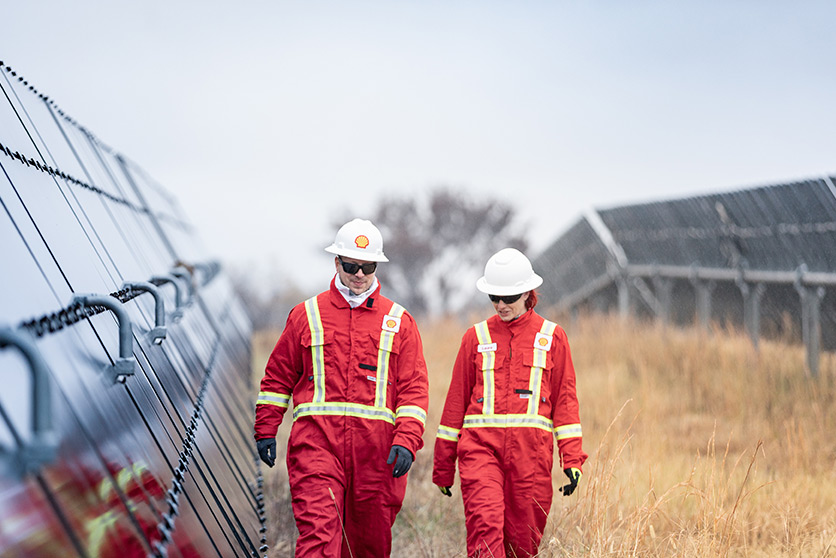
Silicon Ranch Solar Farm, Tennessee, USA
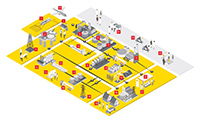 Our businesses and organisation
Our businesses and organisation
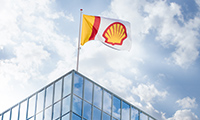 Overall highlights in 2019
Overall highlights in 2019
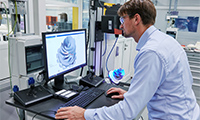 Projects & Technology overview
Projects & Technology overview
 Financial data
Financial data
